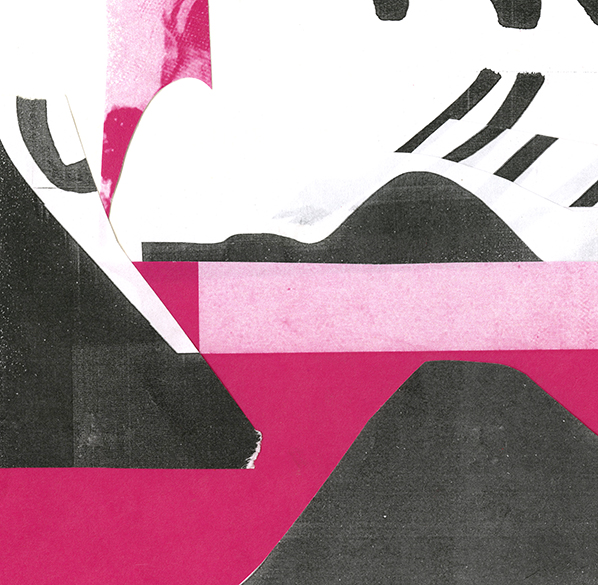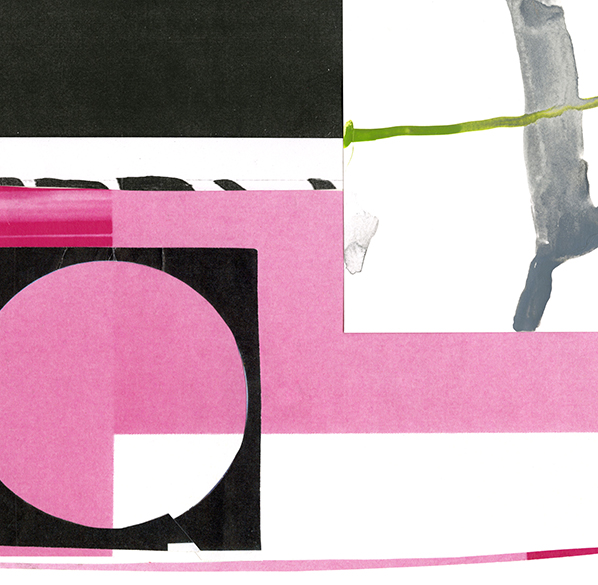"the interviewer has my hand / in their hand now & they ask me if I’d like to learn"
sound like they are being spoken underwater. the interviewer asks
if I have come to any new conclusions about the titanic. I think dying
afraid is treason against your lone, cherished life. a disaster of terrible hours
masked by occasional miracle. but I am speaking for myself, I say. I want time
to fall in love with my endings before I take their hand. a halo of orange
stains my cheek. A smattering of lipstick before a door closes & never opens
again. I look up & it is dark before I can ask forgiveness for not loving
the occasional miracle of light. at the dawn of dying, a man
told me it wasn’t the entirety of his living that flashed before him.
only the softest, prettiest moment on an endless loop in every dream
& he said to wake up from that, each morning, & still be here
was another kind of death. the interviewer asks if I know how to swim.
I cannot see water from where I l̶o̶v̶e̶ ̶ live, so I don’t believe it can touch me.
the story is there were people aboard the ship who would have survived
if they believed the ship was sinking. invincible beings on an invincible vessel.
but I ask who is in charge of setting the distance between knowing
you will die & not wanting to. from far enough out, it is impossible
to tell where the sky ends & the water begins, a child might say, a finger hanging
over the sand-struck edge of the world. what strange architecture, the illusion
between heavens. darkness mothers darkness which mothers myth.
any good executioner knows this. an iceberg finds paradise in the yawning black,
its bladed edges looking, perhaps, from afar, like stars strung across
another doorway to another unromantic night. the interviewer asks
if I know how to swim. I love the thrill of waking
from a nightmare, evicted from the hell of my mind’s own making & thrown
back, gasping, into a moment of gratitude thin as the thread that barricades the door
between love and anguish. a half-minute to praise the hauntings, the illusions
that would rather me dead. but would you believe the bed is still
empty, despite the good news. I apologize to the absence until I envy my dead
pal, who died a new death each morning when he was torn from his long-gone
beloved. who, in his dream, danced with him in their first house & sung darling,
you send me / I know you send me into his ear & I haven’t loved anyone enough
to want to run, screaming their name through God’s hallways. I haven’t loved anyone
who visits me while I sleep & die & die again. the interviewer has my hand
in their hand now & they ask me if I’d like to learn. they tell me it’s only as cold
as I imagine it to be. I’m sorry. I am always doing this. we began somewhere
else. I know we are here to talk about drowning, but what if we never
find each other in the afterlife. if we arrive with a memory of love, a sweetness
that took its leave upon our earthly exit. what if even in heaven, we are meant to wander,
lonely as an iceberg floating between a lie & the truth. wouldn’t you want to stay
a little longer? The child standing on the shoreline understands
this. means to say that there is no difference between the suffering.
heaven, another kind of drowning. I would be among those who were called
disbelievers. I would find a place to watch the sky while the ship curled upwards
like a wicked grin. I need a moment to fall in love with my endings. I know,
it will be over soon. forgive me for holding on. I am too afraid there is nothing
on the other side. God fashions a door & you spend eternity walking through,
only to find another door. God invents an echo of longing for all of us in
the end. the interviewer asks if I know that the flowers I’ve been holding
are dead. When I look down, I wake up. A parade of rose petals spiral
from under my tongue, each one covered in ice.


A sale happens not because you want to sell, but because someone wants to buy

Founders can make or break a company, and getting over oneself is the key

A senior scholar at the National Academy of Engineering explains why human error is a symptom—not the reason—for most safety failures